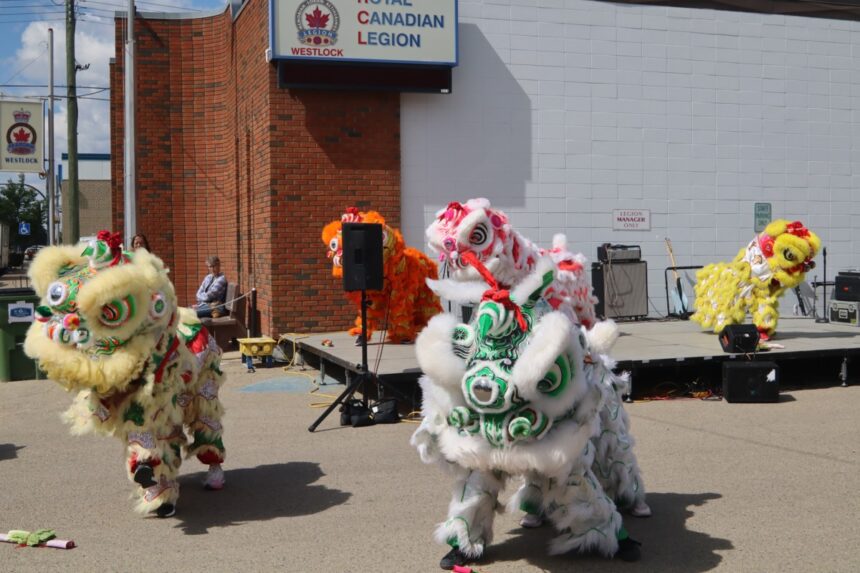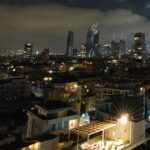As I strolled through Memorial Park last Saturday, the sounds of Ukrainian folk music mingled with the aroma of Filipino pancit and the colorful displays of Indigenous art. Westlock’s first-ever Cultural Festival wasn’t just an event—it was a statement about the changing face of rural Alberta.
“We’ve been planning this for nearly two years,” said Megan Harris, the festival’s lead organizer and Westlock Cultural Society chairperson. “Our community has grown more diverse over the past decade, but we’ve never had a proper celebration that brings all these wonderful traditions together.”
The festival, which drew an estimated 2,000 attendees despite morning showers, showcased cultural performances, food vendors, and artisans representing over 15 different cultural backgrounds—all from a town of barely 5,000 residents.
What struck me most was how the event reflected broader demographic shifts happening across rural Alberta. Statistics Canada reports that immigration to smaller communities has increased by 40% since 2016, with many newcomers bringing essential skills to agricultural communities and healthcare facilities.
“I moved here from the Philippines in 2018 to work at the Westlock Healthcare Centre,” said Elena Santos, who served homemade pancit and lumpia from her food stand. “At first, I felt very alone. Now there are twelve Filipino families in town, and events like this help us feel like we truly belong.”
The festival wasn’t without its planning challenges. Town councillor Raymond Bullock explained that securing funding required persistence. “We cobbled together support from the provincial Rural Initiatives Grant, local businesses, and the town council. Everyone recognized this wasn’t just about entertainment—it’s about community building.”
Indigenous participation was particularly meaningful, with elders from nearby Alexis Nakota Sioux Nation performing an opening ceremony. David Cardinal, a community elder, told me this represented important progress. “Having our traditions front and center matters. This land has always been a meeting place for different peoples.”
The festival’s timing coincides with changing conversations about rural identity across Canada. Research from the University of Alberta’s Rural Development Institute suggests that cultural integration in smaller communities often happens more organically than in urban centers, though with fewer formal support structures.
“When a newcomer arrives in a small town, everyone notices,” said Dr. Jennifer Welch, a sociology professor who studies rural demographic shifts. “That visibility can be challenging, but it also means the community response can be more personal and direct.”
Local schools played a significant role in the festival, with student performances and art displays. Westlock Elementary principal Sarah Morgenson described how the school’s population has transformed. “Ten years ago, we had students from maybe three cultural backgrounds. Today, we have fifteen different languages spoken in our hallways.”
The festival also revealed economic dimensions of rural diversity. Several vendors were first-time entrepreneurs testing business ideas. Ahmad Khalil, who moved from Syria in 2019, sold out of his homemade baklava before noon. “I’ve been baking for neighbors, and everyone says I should open a shop. Today was my market research,” he laughed.
Westlock Mayor Mary Clarkson sees the festival as part of a necessary evolution. “Small towns that resist change wither away. The communities that thrive are those that can honor their heritage while embracing new energy and ideas. That’s what today represents.”
The day wasn’t entirely without tension. I overheard occasional grumbling from some longtime residents about “changing too much, too fast.” Festival organizer Harris acknowledged these sentiments. “Change is never comfortable for everyone. But we’ve found that sharing food, music, and stories helps build bridges.”
The festival’s success has already prompted discussions about making it an annual tradition. Town council has tentatively approved dates for next year, with plans to expand programming and potentially coordinate with neighboring communities like Barrhead and Athabasca.
As evening approached and families spread blankets on the grass for the closing concert, I chatted with Frank Willard, a third-generation farmer who’s lived in Westlock for all of his 72 years. “You know, I wasn’t sure about all this,” he admitted, gesturing toward the festivities. “But my granddaughter is on stage performing a Ukrainian dance she learned at school, and I just had the best dumplings I’ve ever tasted. Maybe this is exactly what Westlock needed.”
Perhaps that’s the festival’s most important achievement—creating space where tradition and change don’t compete but complement each other, even in the heart of rural Alberta.
The Westlock Cultural Festival organizing committee will hold a public meeting next month to gather community feedback and begin planning for 2025. Based on this year’s turnout, they’ll need a bigger venue.






